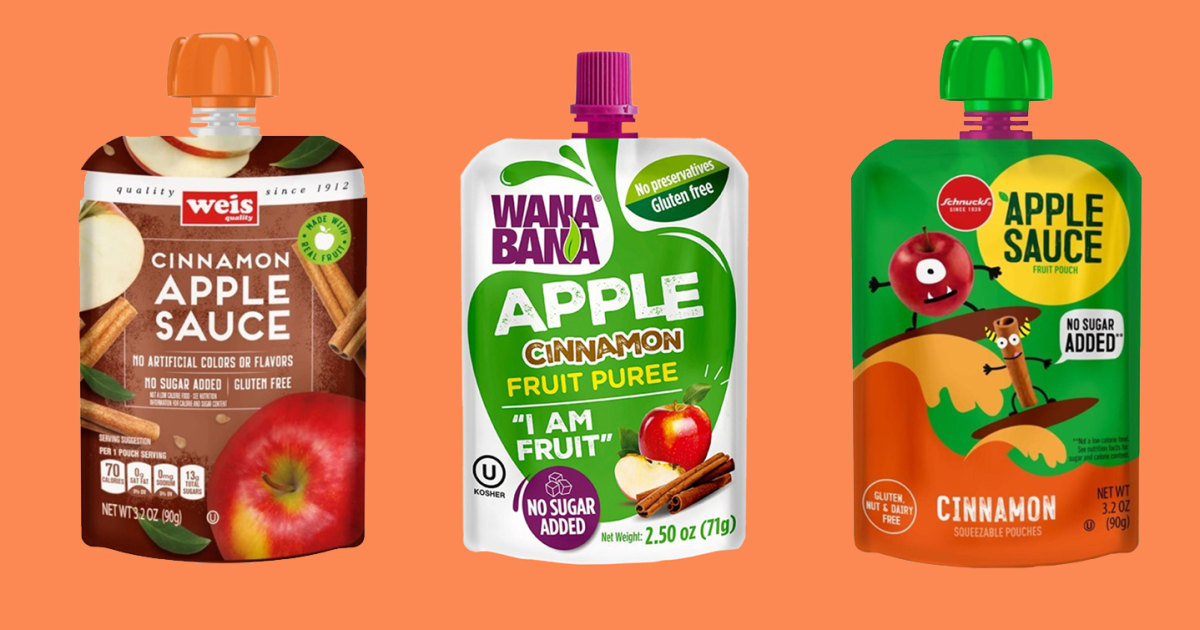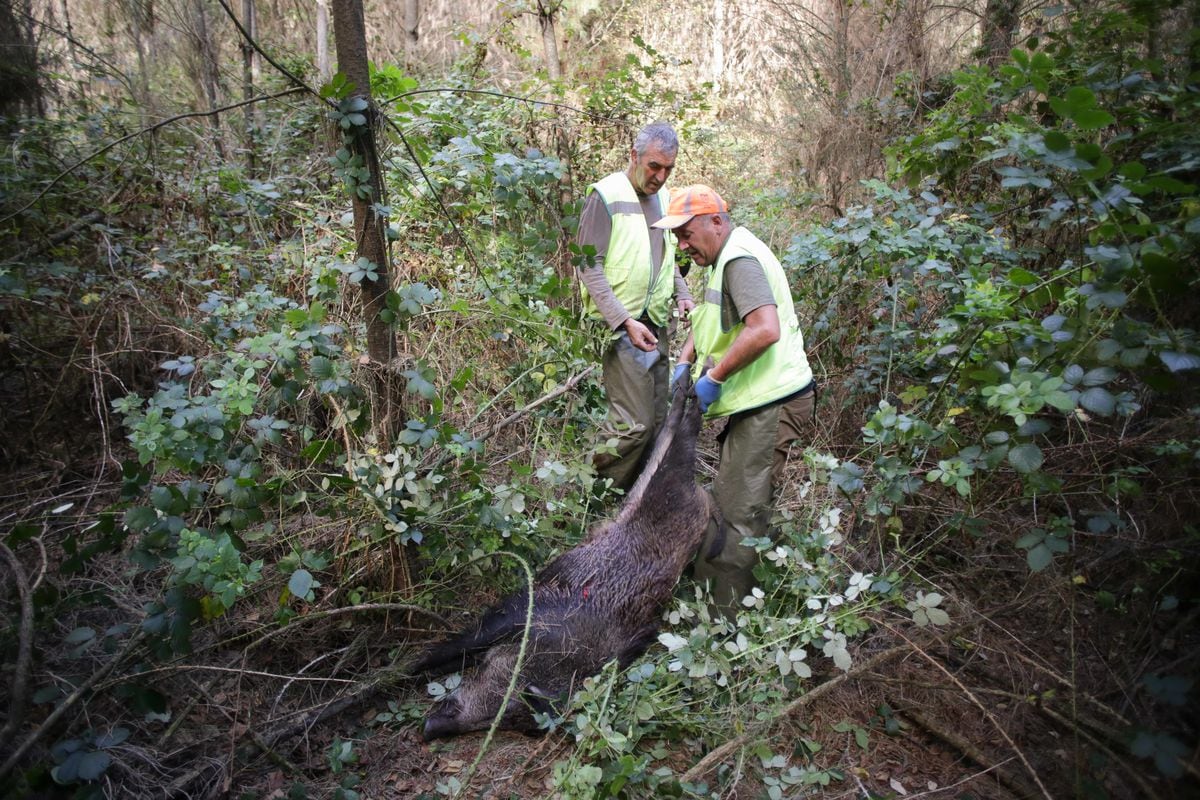Baby foods made by well-known brands in the market contain
high levels of toxic metals
that can put the neurological development of children at risk, according to a congressional report released Thursday.
Arsenic, lead, cadmium, and mercury are present at "dangerously high levels" in foods such as
rice cereals, mashed sweet potatoes, juices, and sweet snacks
.
This is the conclusion reached by consumer advocacy groups in recent years, and has now been officially warned by the Subcommittee on Consumer Economic Policy of the House of Representatives Supervisory Commission.
The committee finds it necessary for federal regulators to set stricter standards for baby food manufacturers: "
The federal Food Administration must set standards
and regulate this industry much more closely, and it must start now. It is shocking that parents are being completely abandoned by his government in this regard, "the chairman of the subcommittee, Democrat Raja Krishnamoorthi, told The Washington Post.
[FDA issues an alert for all alcohol-based hand sanitizers made in Mexico]
Exposure to heavy metals in food can be detrimental to children's brain and nervous system development, although the extent of the damage they can do at the levels found in baby food is not yet clear.
The committee's investigation was launched after learning the results of a study conducted by Healthy Babies Bright Futures, an alliance of nonprofit organizations, whose goal is to reduce babies' exposure to toxic chemicals.
Gerber, Beech-Nut, HappyBABY (manufactured by Nurture), and Earth's Best Organic Baby Foods (manufactured by Hain Celestial Group) complied with the committee's request to present their testing of their food.
Campbell Soup, which sells Plum Organics baby foods;
Parent's Choice (Walmart brand);
and Sprout Foods declined to cooperate with the investigation, members of the subcommittee reported.
["I waited a long time". A woman who gave birth in a coma from COVID-19 meets her baby months later]
According to the Health Department's Toxic Substances and Disease Registry agency, arsenic ranks first among naturally-occurring substances that pose a significant health risk.
Lead is number two on the list of potential threats.
Although there are no maximum arsenic levels set for baby foods (except for baby rice cereals, which have a maximum of 100 parts per billion inorganic arsenic), the federal Food Administration has set maximum levels allowed in
water. bottled in 10 parts per billion
inorganic
arsenic
.
They applaud a little girl who spent nine months in a New Mexico hospital for COVID-19
Feb. 3, 202100: 35
In the case of lead in baby food, there is a growing consensus among health experts that levels in baby food should not exceed one part per billion.
According to the Congressional report, Beech-Nut
contained up to 887 parts per billion of lead
.
"We look forward to working with the FDA, in collaboration with the Baby Food Council, on science-based standards for food providers to apply across our industry," said Jason Jacobs, vice president of food safety for Beech-Nut.
[CDC alerts pediatricians to the mysterious inflammatory syndrome that strikes children]
Gerber, one of the leading brands available to low-income families dependent on the Special Supplemental Nutrition Program for Women, Infants, and Children (WIC)
used carrots that contained up to 87 parts per billion of cadmium
.
It also used very high arsenic rice flour and a number of high lead ingredients, according to the report.
A spokesman for the company that is owned by Nestlé, assured the Wall Street Journal that all its food meets safety standards, and that according to him, they are among the strictest in the world.
He added that they work to minimize exposure to heavy metals by testing the soil before planting the crops.
In Nurture's case, the company sold baby food with
up to 10 parts per billion of mercury
even though the company's internal limits were exceeded.
The documents show that Hain used many ingredients in his food with
up to 309 parts per billion of arsenic
.
The test data shows that Hain used at least 24 ingredients that contained more than 100 parts per billion of arsenic.
Hain did not respond to calls from the Wall Street Journal.
[More COVID-19 vaccines for whites and wealthy than for Latino and black minorities. Why this inequality?]
For its part, a Walmart spokesperson said that product testing is managed by its suppliers: "Our private label baby food manufacturers must comply with all applicable laws and regulations."
Campbell Soup., Owner of Plum Organics, said it supports federal authorities in developing additional guidelines on appropriate levels of heavy metals in baby foods.
They added that they are currently
governed by the guidelines of the European Union
and the World Health Organization.
For Krishnamoorthi, it is more worrying that some of the companies did not support the investigation by making internal tests of their food available to the committee.
"There is growing concern that the amount of toxic metals in their food could be even higher than those of their competitors," he said.
Pediatricians call for schools to reopen in California to prevent psychological damage to children
Feb. 4, 202100: 47
According to Krishnamoorthi,
the Administration of former President Donald Trump became aware of the risks that commercial baby food
could contain heavy metals during a private industry presentation on August 1, 2019.
At the time, Hain (Earth's Best Organic) revealed that corporate policies for testing only ingredients, not end products, might not accurately indicate levels of toxic metals in food.
"I hope that companies start to analyze not only their ingredients, but also their finished products," Krishnamoorthi said, "and I hope that companies label their products to show the presence of these toxic ingredients, and eventually remove them."
The most important thing for the legislator is that
the federal authorities establish the norms
and limits allowed for each of these metals in baby food.
Krishnamoorthi added that this is the committee's third investigation focused on babies.
The other two examined the safety of car seats and that of talcum powder.
[More COVID-19 vaccines for whites and wealthy than for Latino and black minorities. Why this inequality?]
The FDA acknowledged through a statement that there is more work to be done.
"We reiterate our firm commitment to continue reducing consumer exposure to toxic elements and other contaminants in food," said the federal Food Administration.
With information from the
Wall Street Journal and the Washington Post.









/cloudfront-eu-central-1.images.arcpublishing.com/prisa/KMEYMJKESBAZBE4MRBAM4TGHIQ.jpg)


